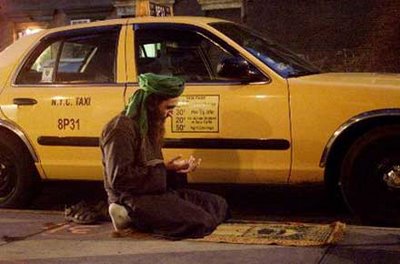

It is hard to not find the irony in this debate. The founders of America KNEW this would be an issue, and thought to put it to rest by creating separations for religion and government. From that day forward, it has only become more contentious an issue with religious extremists. There is nothing wrong with being an extremist, but every piece of agenda should be scrutinized.
One should aks "does this act of government benefit the whole society?" instead of the belief that one should impose their version of God's will on others, an lack such societal benefits.
In Minneapolis, taxi drivers are imposing their will on those who wish to transport alcohol. If you have a can of Heineken, sorry, find another cab. The wrath of Allah will fall on me if I do my job.
Then you have the Christians working as pharmacists. A college student goes to Target to pick up a birth-control prescription and is told "sorry, I cannot help you." Because the wrath of God and/or Mary will come down upon the pharmacist if they do their job.
Some Hindus in India will not sell homes to you or let you live in certain neighborhoods unless you are a vegetarian. The evil karma of carnivores surely cannot be stood for.
What about sex offenders moving into a neighborhood with a high population of children? In Minneapolis, there are many offenders who move here thinking they are safe, only to find a rain of bullets impact their skulls. Vigilante 'justice' is not called for, but it happens.
I could go on, but you get the point. Imposing your religous beliefs on others, without consideration for freedoms and the benefit others may get, is immoral. People of many faiths understand this, and are confounded by those who share their faith don't understand secular values.
Does this mean we do not impose rules on those who could harm others? Of course not, society must condemn all harmful and detrimental actions treating the perpetraitors humanely. For if we lose site of humane treatment for the inhumane, we lose the possibility for positive transformation by the inhumane, thereby becoming what we so disdain.
1 comment:
Yay Greens!
Post a Comment